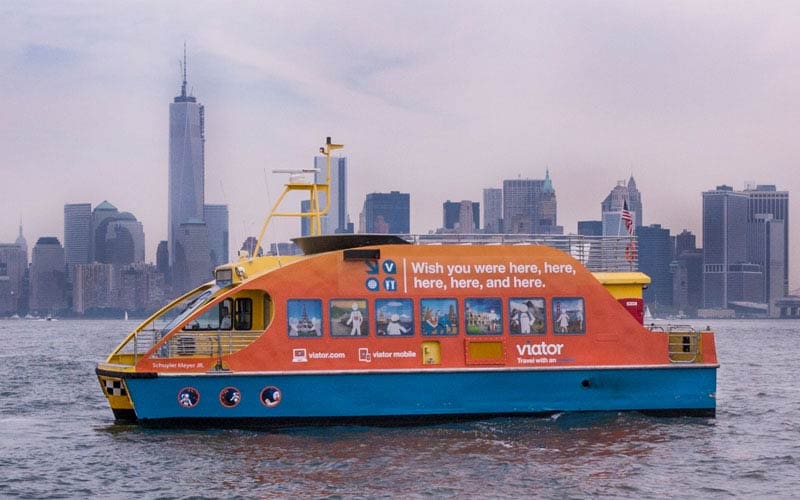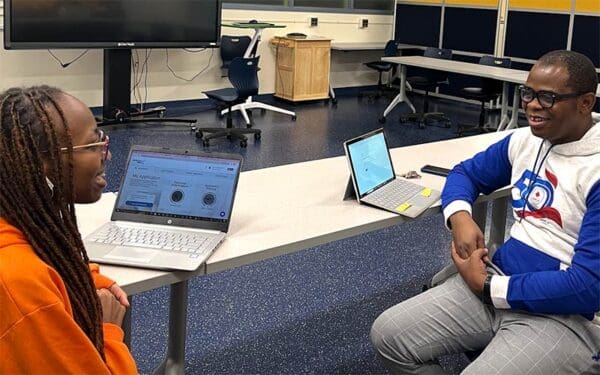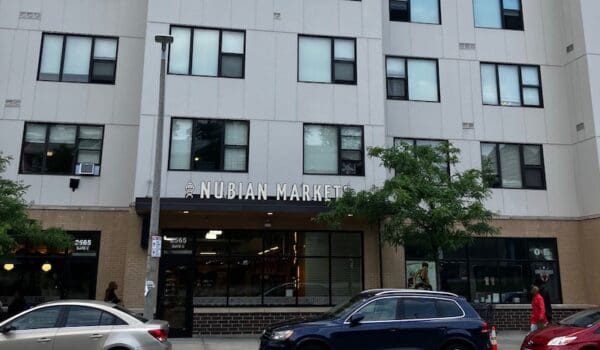
CLF and New York Cruise Lines, Inc. leverage EPA grant to invest in creative solutions that work for the environment, the community, and the company's bottom line. Photo: New York Cruise Lines, Inc.
Gus Markou, President and COO of New York Cruise Lines, has witnessed many changes over his 30-plus year career in the maritime industry. Yet, he sees the EPA’s Diesel Emissions Reduction Act (DERA) program as a triple win – it’s good for the environment, the community, and the company’s bottom line.
In 2020, the EPA awarded CLF a DERA grant to partner with New York Cruise Lines, Inc. The grant will help pay for 12 new propulsion and auxiliary engines for two ferries and three excursion vessels. Altogether, this public-private partnership will invest over $1.8 million to reduce polluting diesel emissions. This means cleaner air and better health for all.
I caught up with Gus back in October to learn about the impacts of DERA funding and engine replacements on his company. Our conversation has been edited for clarity.
How did you get started working in the maritime industry?
I attended a maritime technical school in New York City aboard the SS. John W Brown – an old Liberty ship from World War II. Most of my career since then has been with passenger vessels: commuter and sightseer ships.
Over the course of your career, what changes – in terms of environmental and conservation efforts – have you seen that have impacted the maritime industry?
Being on the waterfront for the last 33 years, I see the difference everywhere on the water. The water is getting cleaner. The vessels are staying cleaner – they don’t get dark and black, and it’s easier to maintain them. It’s a great thing to see the water getting clearer. You see more wildlife, especially here at the mouth of the Hudson River.
What motivated you to participate in the EPA’s DERA program?
The first repower we did was in 2005. Since then, we have probably replaced close to 60 engines [through the DERA program]. One reason to replace the old engines with modern engines is emissions – to take care of the environment. The second is because they’re more fuel-efficient, easier to work on, and more dependable.
What do you hope will be achieved by this project?
The biggest one is fuel efficiency. Repowers have a major impact on fuel savings. Most of these modern engines are very fuel-efficient, which leads to big cost savings. And, they are more dependable – a lot more dependable than the older engines.
We also realized – once we started to build new vessels and repower old vessels – that the community we operate in wants modern engines. They want the latest models for their communities in order to not pollute. They don’t want to see all that smoke coming out of the boat. That is a very big thing these days, to be able to have new modern engines that do not pollute.
So, part of the reason for doing these projects is that the community has asked for better?
Correct – that is a big reason. Again, fuel is a big thing, but we’re able to provide something for the community and something for the environment at the same time.
What advice would you give to other maritime companies thinking about undertaking a DERA project?
You have an opportunity to upgrade your equipment to be a lot safer, to save fuel, and to clean the air. I think everybody should take it. Everybody should take the opportunity and think this is the right thing to do these days. Change your engines.
Would you say that the investment on the company’s end is worth it?
I think that what you put into it, you will get it in return. Economically, there are big savings in fuel costs with modern engines. And again, you’re providing something for the environment. You’re providing clean air.
How has the COVID-19 pandemic impacted New York Cruise Lines?
COVID-19 has had a tremendous impact on our industry. We provide services to tourists, and tourists are not traveling like they used to. Everybody is restricted. Local people are not jumping on boats like they used to.
We are up and running now, though we are not running 100%. We are running approximately 5 out of 26 vessels right now. We’re also coming out of our peak season. So, it will get slower than it is now.
Hopefully, next year will be a better year for us, and we will go back to some normalcy. Hopefully, people will start traveling and will be comfortable getting back on boats to enjoy the weather and the sights.
Moving Toward Cleaner Air
The DERA program continues to fund projects to improve the air quality in our communities. We encourage our local and regional industries to take advantage of this opportunity. CLF will continue to collaborate with local business leaders to find creative solutions that work for all.



